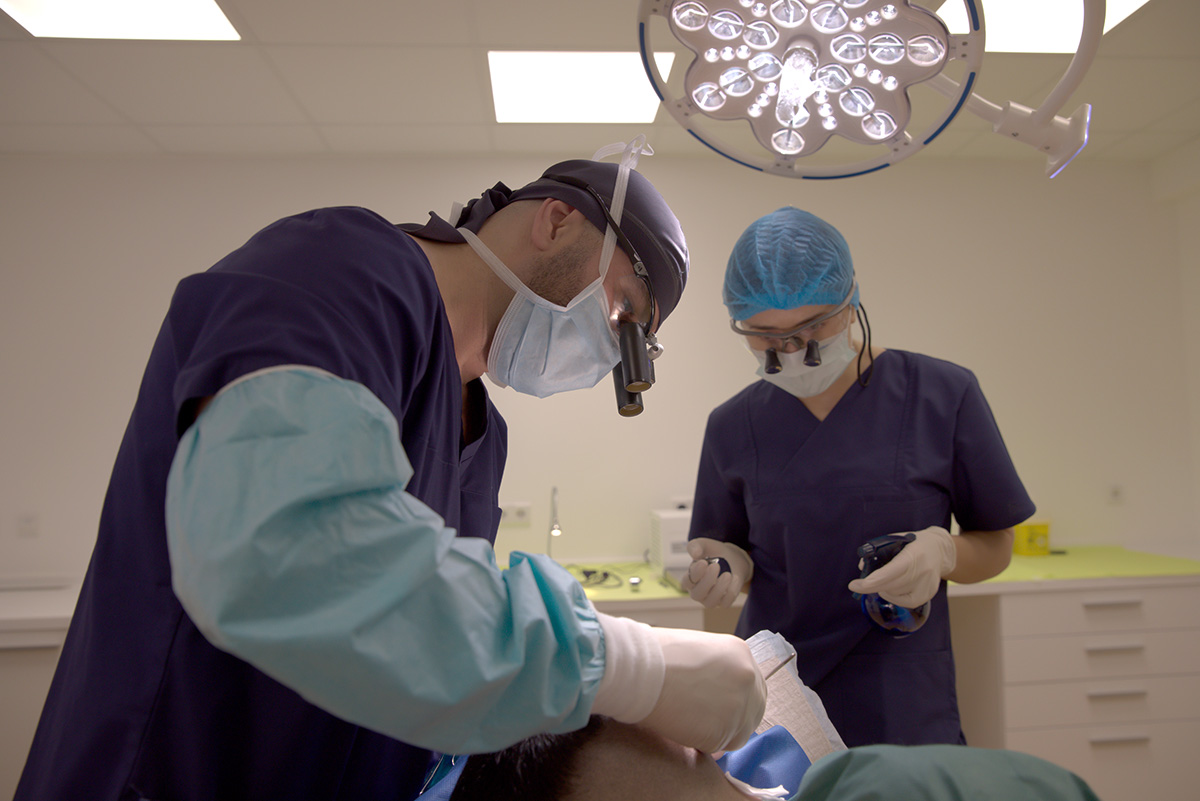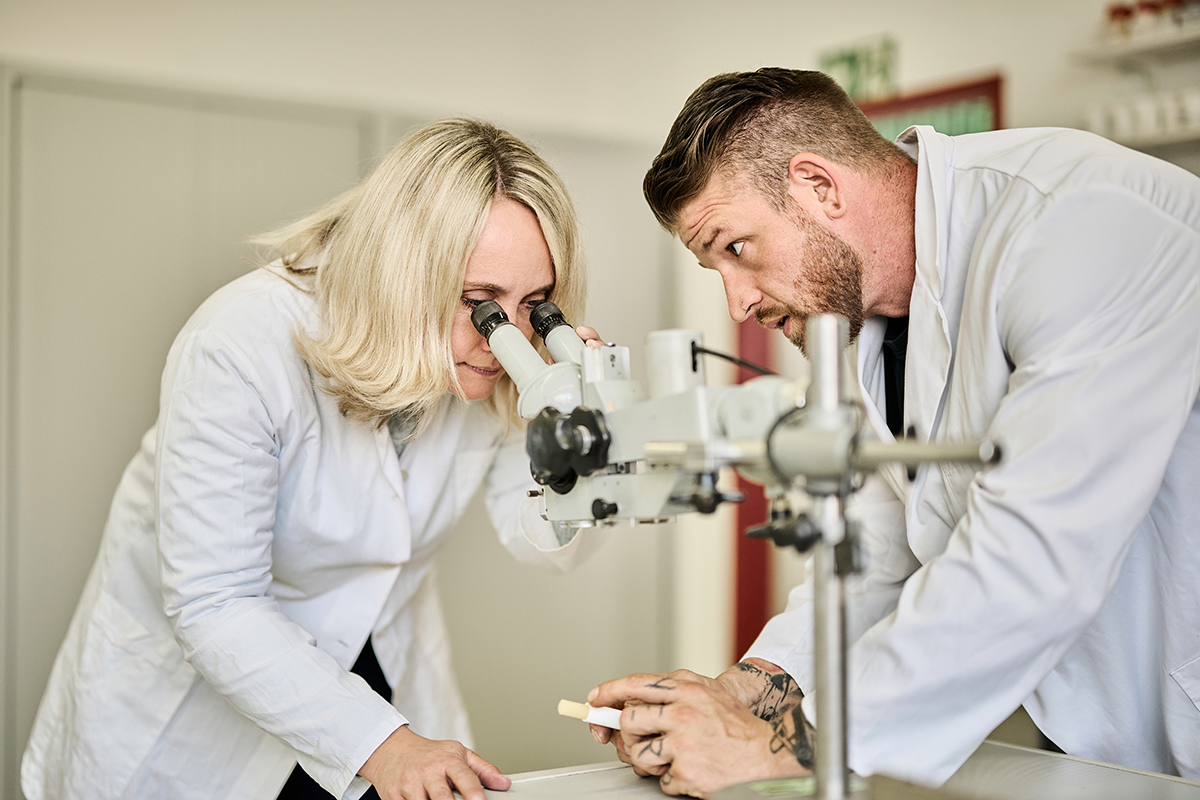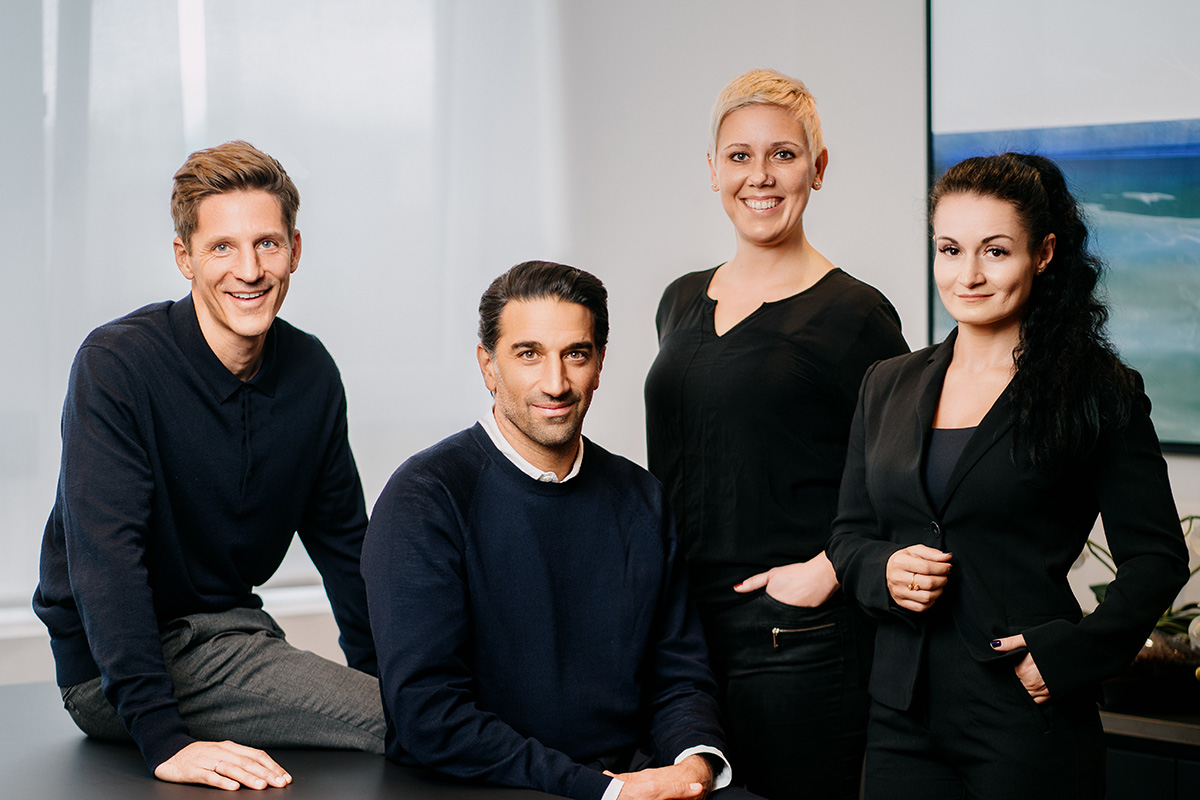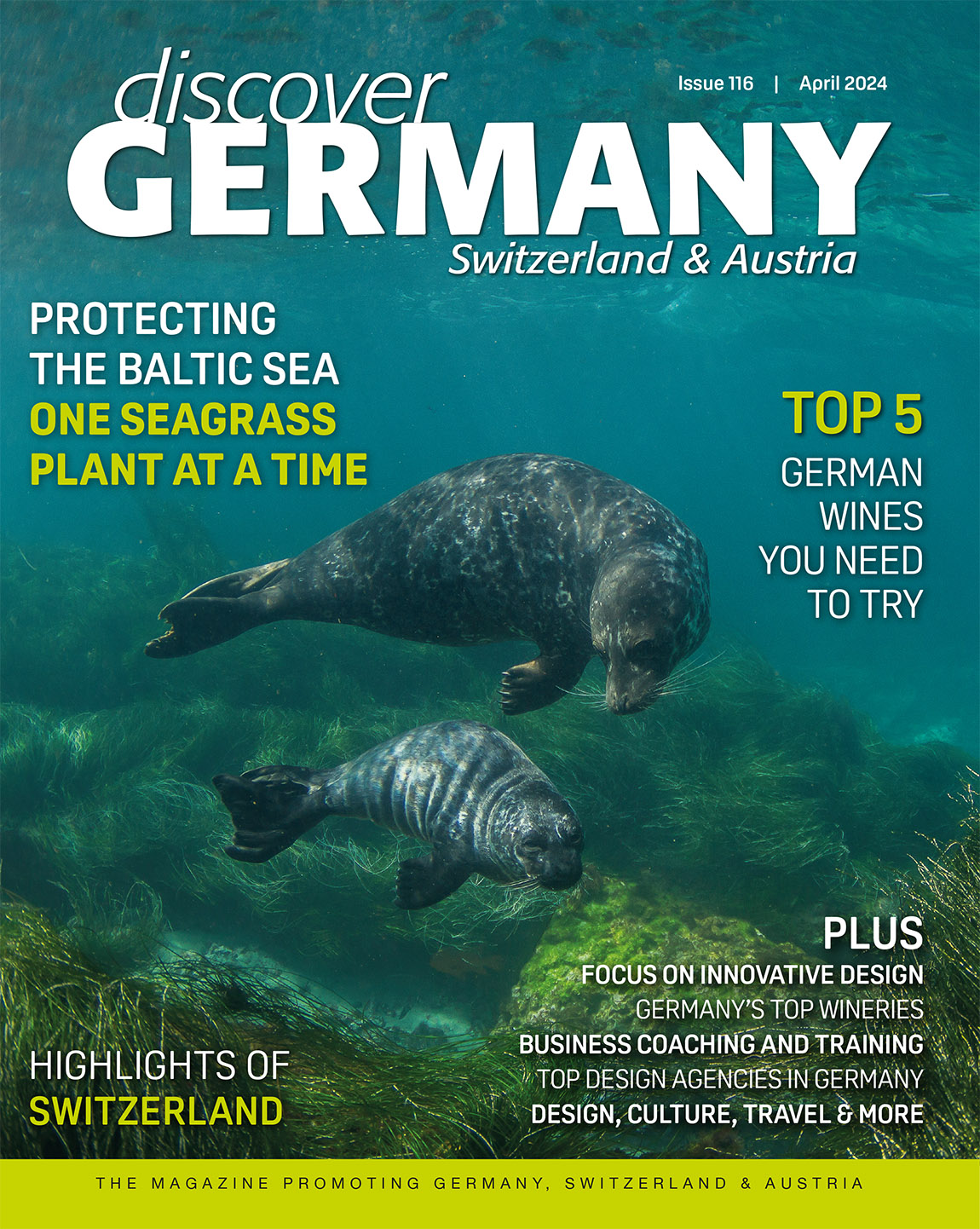ARTIDIS AG: A Swiss start-up develops technology to optimise cancer treatment
Text: Jessica Holzhausen I Photos: Artidis
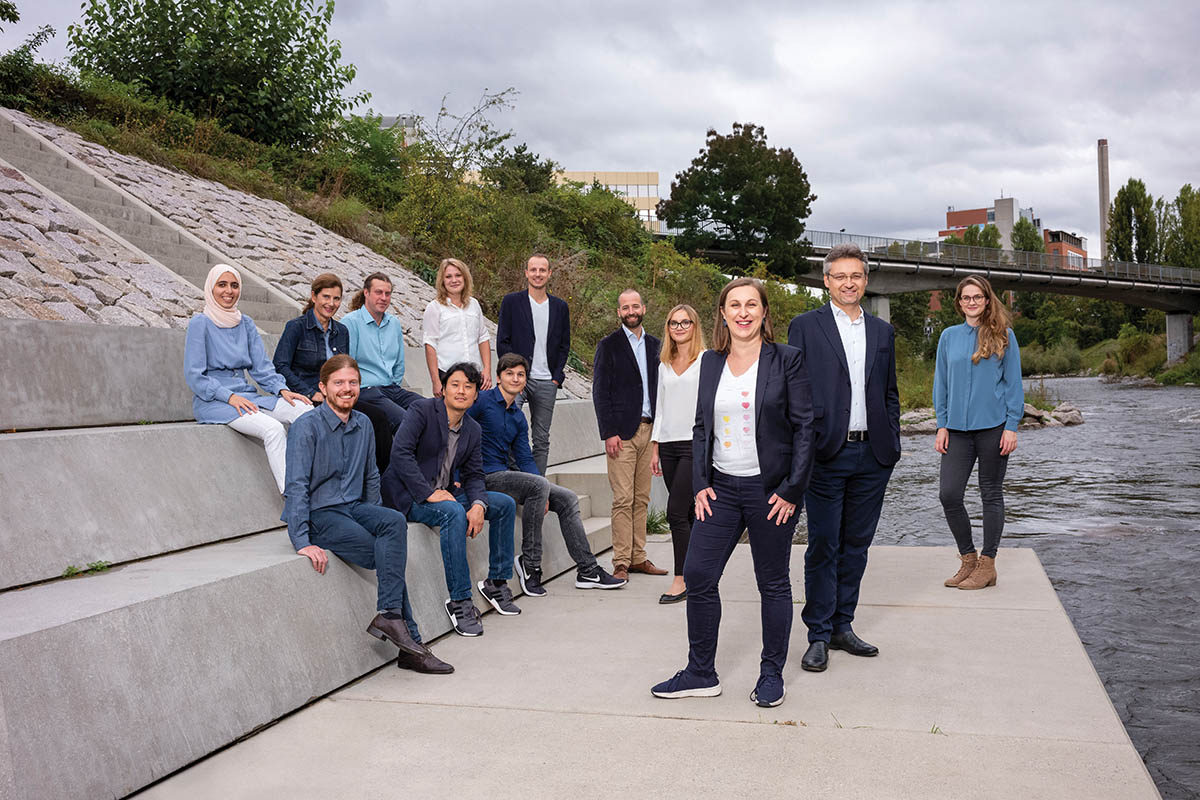
ARTIDIS team Switzerland.
While today’s medical procedures can successfully determine cancer types and treatment plans, this process can still at times be ineffective and takes a long time in practice. The Swiss start-up ARTIDIS AG, however, has now developed a nanomechanical sensor that has the opportunity to revolutionise cancer diagnosis and treatment. Clinical trials in Europe and the US are starting in spring.
Cancer is a global problem and its diagnosis can be terrifying and stressful for patients, especially since it often takes several days and multiple visits until doctors can finally tell patients with certainty if they do indeed have cancer. That makes a quick and effective diagnosis so important, says Marija Plodinec, CEO at ARTIDIS AG. The company has developed a new diagnosis tool that combines the analysis of certain biomarkers and physical properties of tissue with that of personal data. Nanomechanical sensors can differentiate between benign and malign tissue in under three hours, making the diagnosis more effective and quick.
Predicting if a cancer will build metastases
“We are looking at the stiffness of a tumour, which is important, because it tells us if a tumour is actually able to spread,” says Plodinec. Only very soft cells can squeeze through surrounding altered tissue and build life-threatening metastases in other parts of the body. An AI-powered algorithm combines the according biomarker with hundreds of relevant data points and the patient’s own clinical data, which will help doctors make individually tailored treatment plans. “I like to compare it with a cockpit: it is like an autopilot that helps to guide the process, even though at some point a person has to take over to make the final decisions,” says Plodinec.
Marija Plodinec first had this idea in 2008 when working on her PhD: even though the basic technology necessary to measure tissue stiffness was already developed in the 1980s, ARTIDIS was the first to use it in a clinical context within a clinical study including more than 500 patients, which was recently successfully completed in Switzerland.
The company, which today has 15 employees in Switzerland and more than 40 co-workers worldwide, is initially focusing on breast cancer. But this is only the starting point, as it can be used for other cancer types and other medical fields, as well. In 2019, ARTIDIS was one of 16 start-ups selected from 140 competing healthcare companies worldwide and became part of the renowned Texas Medical Centre. ARTIDIS will start clinical trials in spring and hopes for approval in Europe in early 2021, and in the US by the end of 2021.
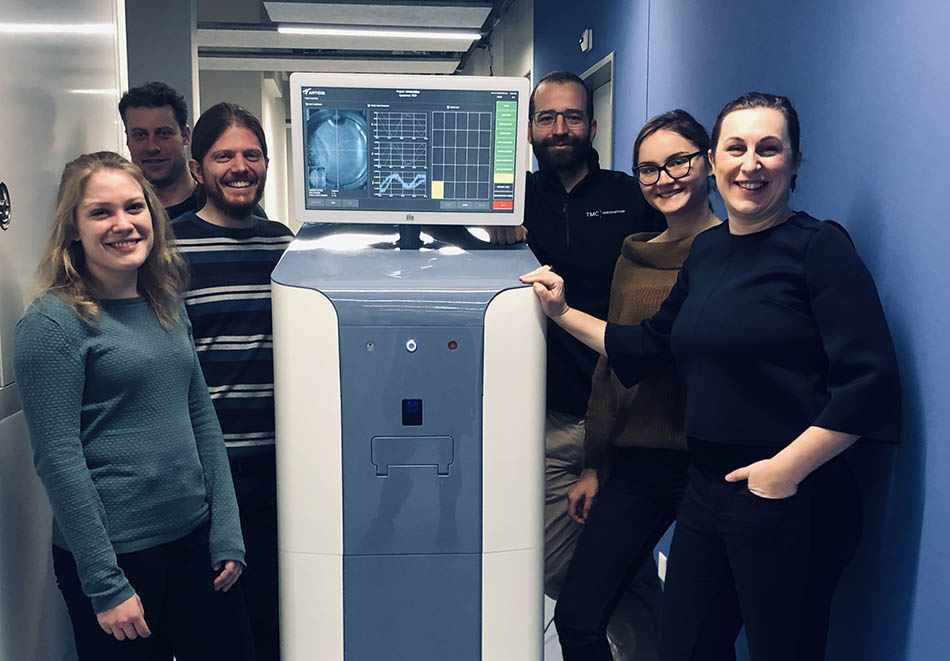
ARTIDIS device and platform.
ARTIDIS AG : Schweizer Start-up entwickelt Technologie zur Optimierung der Krebsbehandlung
A uch wenn heutige medizinische Behandlungsmethoden die Art einer Krebserkrankung erfolgreich bestimmen können, ist der Prozess oft ineffektiv und dauert lange. Das Schweizer Start-up ARTIDIS AG hat einen nanomechanischen Sensor entwickelt, der die Diagnose und Behandlung von Krebs revolutionieren kann. Klinische Studien in Europa und den USA starten im Frühling.
Krebs ist ein weltweites Problem, die Diagnose für Patienten angsteinflößend und stressig, insbesondere weil es häufig mehrere Tage und mehrere Besuche beim Arzt bedarf, bevor Patienten mit Sicherheit erfahren, ob sie eine Krebserkrankung haben. Das macht eine schnelle und effektive Diagnose so wichtig, sagt Marija Plodinec CEO der ARTIDIS AG. Das Unternehmen hat ein neues Diagnose-Tool entwickelt, das einen spezifischen Biomarker und physikalische Eigenschaften von Gewebe mit persönlichen Daten kombiniert. Nanomechanische Sensoren können in unter drei Stunden zwischen gutartigem und bösartigem Gewebe unterscheiden und machen so die Diagnose effektiv und schnell.
Vorhersagen, ob sich Metastasen bilden
„Wir schauen auf die Steifheit des Tumors. Diese ist so wichtig, da sie uns Auskunft darüber gibt, ob der Tumor überhaupt in der Lage ist zu streuen“, sagt Plodinec. Nur sehr weiche Zellen können sich durch das sie umgebende, veränderte Gewebe quetschen und so lebensbedrohliche Metastasen in anderen Teilen des Körpers bilden. Ein von künstlicher Intelligenz gesteuerter Algorithmus kombiniert den entsprechenden Biomarker mit hunderten relevanten Datenpunkten und Patientendaten, was es Ärzten ermöglicht, einen maßgeschneiderten Behandlungsplan zu erstellen. „Ich vergleiche das gerne mit einem Cockpit: Es ist wie ein Autopilot, der hilft, den Prozess zu steuern; an einem bestimmten Punkt muss der Mensch dann aber übernehmen und die finale Entscheidung treffen“, sagt Plodinec.
Marija Plodinec hatte diese Idee erstmals 2008, als sie an ihrer Doktorarbeit arbeitete. Die grundlegende Technologie, um die Steifheit von Gewebe zu messen, existiert bereits seit den 1980ern – ARTIDIS waren aber die ersten, die sie im klinischen Kontext nutzten. Eine klinische Studie mit mehr als 500 Teilnehmern wurde jüngst erfolgreich in der Schweiz abgeschlossen. Das Unternehmen mit seinen 15 Mitarbeitern in der Schweiz und mehr als 40 Mitarbeitern weltweit fokussiert zunächst auf Brustkrebs. Aber dies ist nur der Startpunkt, da ihre Plattform auch für eine Vielzahl anderer Krebsarten und medizinischer Bereiche genutzt werden kann. 2019 war ARTIDIS eines von 16 Start-ups, das aus 140 internationalen Wettbewerbern ausgewählt wurde, um Teil des bekannten Texas Medical Centre zu werden. ARTIDIS startet im Frühling mit weiteren klinischen Studien und hofft, Anfang 2021 in Europa und Ende 2021 in den USA eine Zulassung zu erhalten.
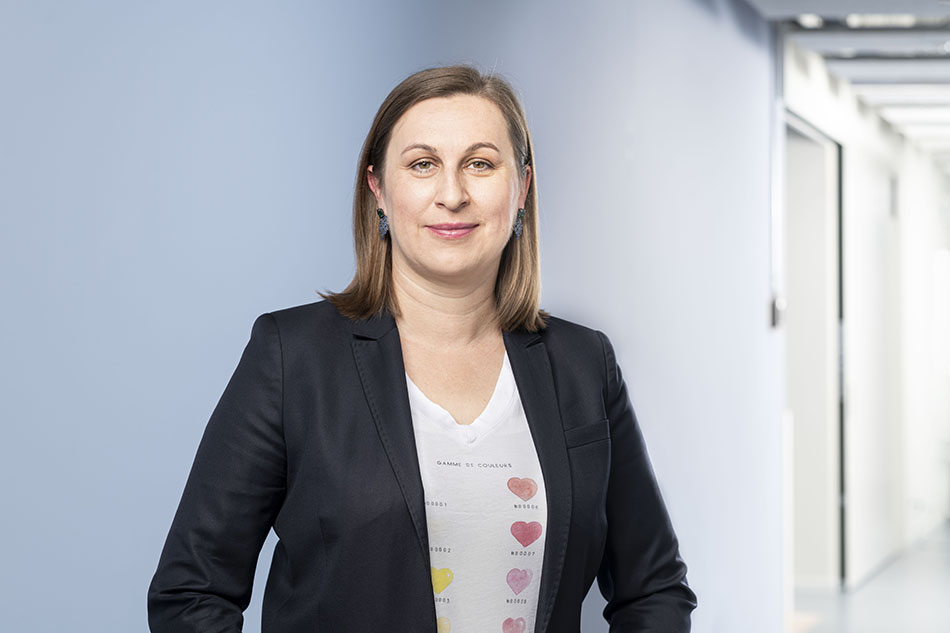
Dr. Marija Plodinec, CEO.
Subscribe to Our Newsletter
Receive our monthly newsletter by email
